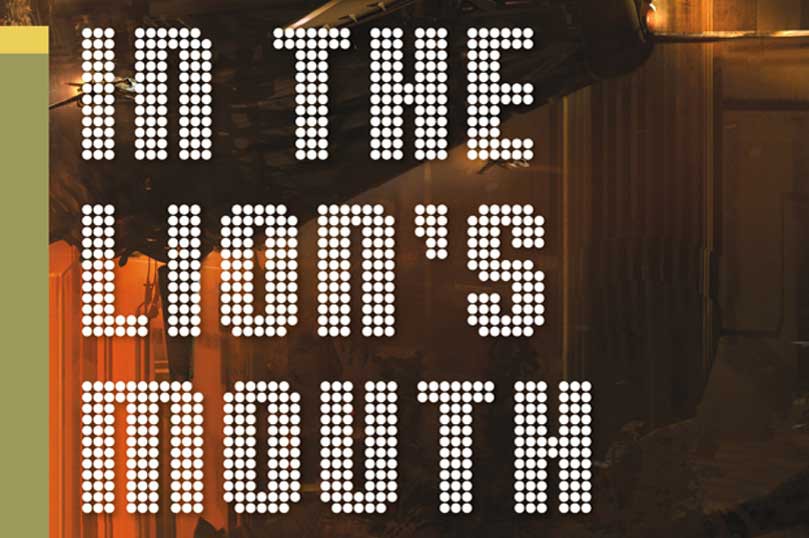Welcome to Throwback Thursdays on the Tor/Forge blog! Every other week, we’re delving into our newsletter archives and sharing some of our favorite posts.
In the January 2012 Tor Newsletter, author Michael Flynn examined the problem of science and technology in far-future sci-fi. He decided, in his own words, “to put a banana in the tailpipe of the engine of progress,” in order to make the world he created more recognizable to those of us here in the present. He explains how the world of his Spiral Arm series works in this blast from the past. Be sure to check back in every other week for more!
The problem with near-future science fiction is that the fiction is over-taken by events. My novel Firestar, recently re-issued by Tor, concerns the near “future” of 1999-2010 and the hot scoop is that things didn’t work out that way. Some of it, sure, including, alas, the predicted recession. But Serbia is no longer the Bad Boy of the Balkans (nor are the Balkans the Place to Keep an Eye On) and we don’t have regularly-scheduled ballistic transport or single-stage to orbit or… However, anyone who thinks the main basic function of SF is to commit journalism on the future will be perennially disappointed.
The problem with far-future science fiction, like the Spiral Arm series (In the Lion’s Mouth, Jan 2012) is different. We can no more imagine the world of seven thousand years to come than Sumerian peasants could imagine Manhattan. But we need to keep it intelligible. What we imagine of the far future is no more likely to be accurate than Sumerian tales of crossing the sky in flaming chariots. Rockets, maybe; but not flaming chariots.
Yet “the accelerating pace of change” is such a cliché that we might ask, “What if it isn’t? After all, for most of human history, change has been minimal. Our Sumerian peasant would find life among the today’s Marsh Arabs full of wonders—iron tools!—but not incomprehensible.
So to keep the Spiral Arm intelligible to modern “Sumerians,” I decided to put a banana in the tailpipe of the engine of progress. There is precedent.
Science and technology need not go hand in hand. China achieved a high technology without developing natural science. And scattered individuals in ancient Hellas and medieval Islam pursued a personal interest in natural philosophy without applying it to “base mechanics.” Only in the Latin West did a passion for technological innovation develop alongside an institutionalized interest in investigating Nature.
The Scientific Revolution combined them. No more was Nature to be studied simply to grasp and appreciate its Beauty. Its purpose would henceforth be to invent Useful Stuff and extend man’s Dominion over Nature. Science, in short, changed from Art Appreciation to Engineering.
Nothing like this happened in China, thought Joseph Needham, because the Chinese lacked a concept of the universe as a created artifact, and therefore had no expectation of a rational order waiting to be discovered. Other historians have linked the stillbirths of science to a persistent belief in the Great Year and “eternal returns.” The ancients—Babylonians, Egyptians, Greeks, Aztecs, Mayans, Hindus, et al.—extrapolated from the cycles of the sun, the seasons, the heavens to an endlessly repeating universe, destroyed and reborn whenever the planets returned to some “original” configuration.
But this belief proved fatal to science. If an eternal and uncreated universe repeats itself endlessly, then whatever can happen has happened, again and again, and the natural laws we discover are only transient configurations of particles eternally in motion. Wait a while. They’ll change.
This is the outlook I superimposed on Spiral Arm society. Scientific progress stopped long ago. Techs apply “the Wisdom of the Ancients” by rote, recite the prayers (formulas) to be followed, but have lost all sense that these things are ordered by deeper principles.
Can it happen? The endless universe has been making a comeback courtesy of Hegel and his disciples: Schelling, Engels, Nietzsche, et al. Even scientists imagine multiverses and endlessly repeated Big Bangs. And—OMG!!!—the Mayan Long Count is ending!!!!
This article is originally from the January 2012 Tor newsletter. Sign up for the Tor newsletter now, and get similar content in your inbox every month!








Comments are closed.
Leave a Reply